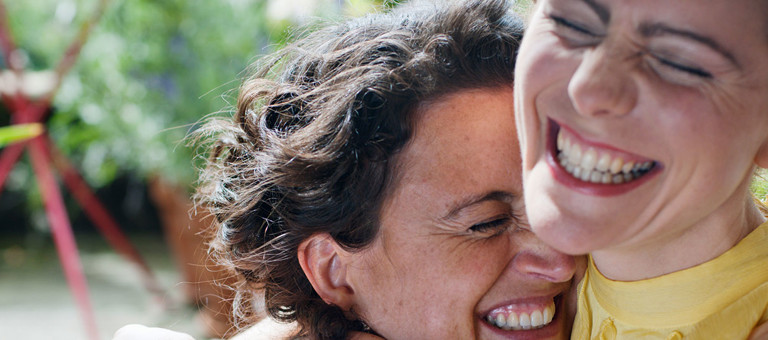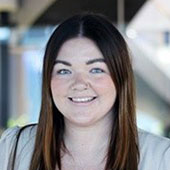Amy : Coping with the feeling of being isolated
‘’From this evening I must give the British people a very simple instruction - you must stay at home’’. I’m sure many of you felt the same as I did back in March 2020 when Boris Johnson announced the first national lockdown: we were officially entering a new world none of us knew how to navigate.
It’s fair to say that this announcement, and the beginning of COVID 19, hit us like a tonne of bricks as we headed into a surreal world. Livelihoods were thrown into panic, jobs became uncertain, loo roll flew off the shelves. The world also went virtual overnight. Jumping onto daily zoom calls, socialising via socially distanced walks, conversations and never-ending quizzes (which became the highlight of the week), and of course the weekly clap for our brilliant NHS. These were the new routines to help keep a sense of normality.
I was luckier than most to live with my parents during the first and second lockdown and had the ‘sunny’ beach of Southend for my daily walks, and a garage to exercise in. However, even as the country rooted together to stay upbeat it was still hard not to feel isolated, confused and at times depressed by these new routines.
I was scared. I have always suffered with mental health issues and have never been ashamed of being open about them. Once I had moved out from my parent’s house and into a tiny flat in London, I found myself hiding in my room, longing to be surrounded with my friends and my family, who I was missing dearly, wishing I could hug ‘my bubble’ again. The sense of loneliness was real. I encountered one self-isolation after another and was really struggling with the new normal, working from home five days a week and countless evolving rules that we had to grapple with.
Once the third lockdown came to end, for me, the anxiety was overwhelming. Going outside, going into the office, going back to dance class and being around groups of people worried me, how could I trust everyone was following the rules? I was terrified of catching COVID and potentially passing it on, especially to those more vulnerable. We lived in a world of fear.
Luckily, I uncovered some coping mechanisms which helped me with these emotions. I found a new walking route, mostly to get some exercise but also to explore places in my new local area. The return of dance classes, with some restrictions, took me to my happy place. Class numbers were limited and you had to provide a negative test before arriving, so I knew that everyone was safe.
For me, being outside and being active really helped me come to terms with the new normal and supported me with the anxiety I was feeling. But the thing that helped the most through all of this, was a simple piece of advice that a friend gave me. They reminded me that I’m not alone in this, and, though it impacts us in different ways, we’re all in it together.
What helps you cope when you’re feeling down or isolated? What’s the best piece of advice you’ve been given to support your mental health? #SpeakUpWhenYou’reFeelingDown #JoinTheConversation
Charlotte: work-life balance is key
Coming out of two years with restrictions, I have reflected a lot. COVID had a detrimental effect on our society, our mental health, and our everyday lives. Little things in life I appreciate so much more, and I really do believe you only live once. It is important to cherish our time and have a healthy work-life balance. Pre-COVID I worked at another company and, as was the case for most EAs, I was expected to be in the office five days a week and that was non-negotiable. It was an unspoken view that if I was not in the office, I wasn’t doing my job as effectively. Haven’t times changed?
This new hybrid approach for working allows us to really achieve that work life balance we dream of and deserve. I have seen such a change in my own wellbeing along with the wellbeing of the people I support and work with. Having that degree of flexibility encourages me to work harder, make the most of my time either at home or in the office and invest in my health and wellbeing. I make more time to keep active, eat healthier and enjoy that personal time with my friends and family. In terms of the diaries I support, I can now prioritise personal commitments and it is acknowledged and respected, no questions asked. This new way of working is a blessing to us all and I think it should not be quickly forgotten as we see the long overdue exit of COVID from our lives.
Having said this, it’s important to consider and not forget the value of having that face-to-face time with colleagues and the people you support. Building relationships through a screen can feel abnormal and challenging. Some weeks I may see value in being more in the office than at home and the beauty which flexible working allows me to adapt my schedule and working environment to get the most out of my week.
For me, the most important thing I’ve taken away from all of this is balance. Balance is what COVID has given us, and a balance can be incredibly valuable in making us more productive and happier.
Emily: how does your company support your wellbeing?
Long before COVID, one thing that really stood out for me when I interviewed for Baringa was their approach to flexible working. It showed me how progressive and people focused the company was. Working for an employer that really cares for your wellbeing and puts you first is such a rarity (although it really shouldn’t be). A positive work-life balance is not only encouraged at Baringa but celebrated!
Baringa has so many benefits in place to help all employees, regardless of your personal life and individual situations. There’s everything from mental health first aiders, in house psychologists and buddies for every new joiner, to wellbeing apps, contributions towards wellbeing perks (such as massages or gym memberships), and even a doctor to hand whenever you feel like you need one.
These simple things have been fundamental to my personal wellbeing since I’ve been at Baringa, and help in making me feel safe, comfortable and cared for as an individual. In addition, I forever feel grateful for the little things… like being able to take meetings outside for a walk, instead of sitting in a meeting room, going to the gym on my lunch break, or leaving 30 minutes early to pick up my child. All these things contribute to making my mental state a happier place and for that I am truly grateful to Baringa!
Mental health and wellbeing are slowly coming to be taboo subjects no more, thankfully, and so having access to all the above (and more!), gives a great feeling of support to know if ever I need it my employer is there for me in more ways than one. #PuttingPeopleFirst #CreatingImpactThatLasts
About the authors
Amy, Charlotte, and Emily have all been with Baringa coming up to a year and are the core team behind the scenes of ‘EA Things’. They have a passion for wellbeing, marketing, and raising the profile for EAs.
What’s up next?
Pride is a community of love. In our next blog we will be taking a look into one of our EAs and her journey to being out and proud and how Baringa embraces diversity and allyship.



